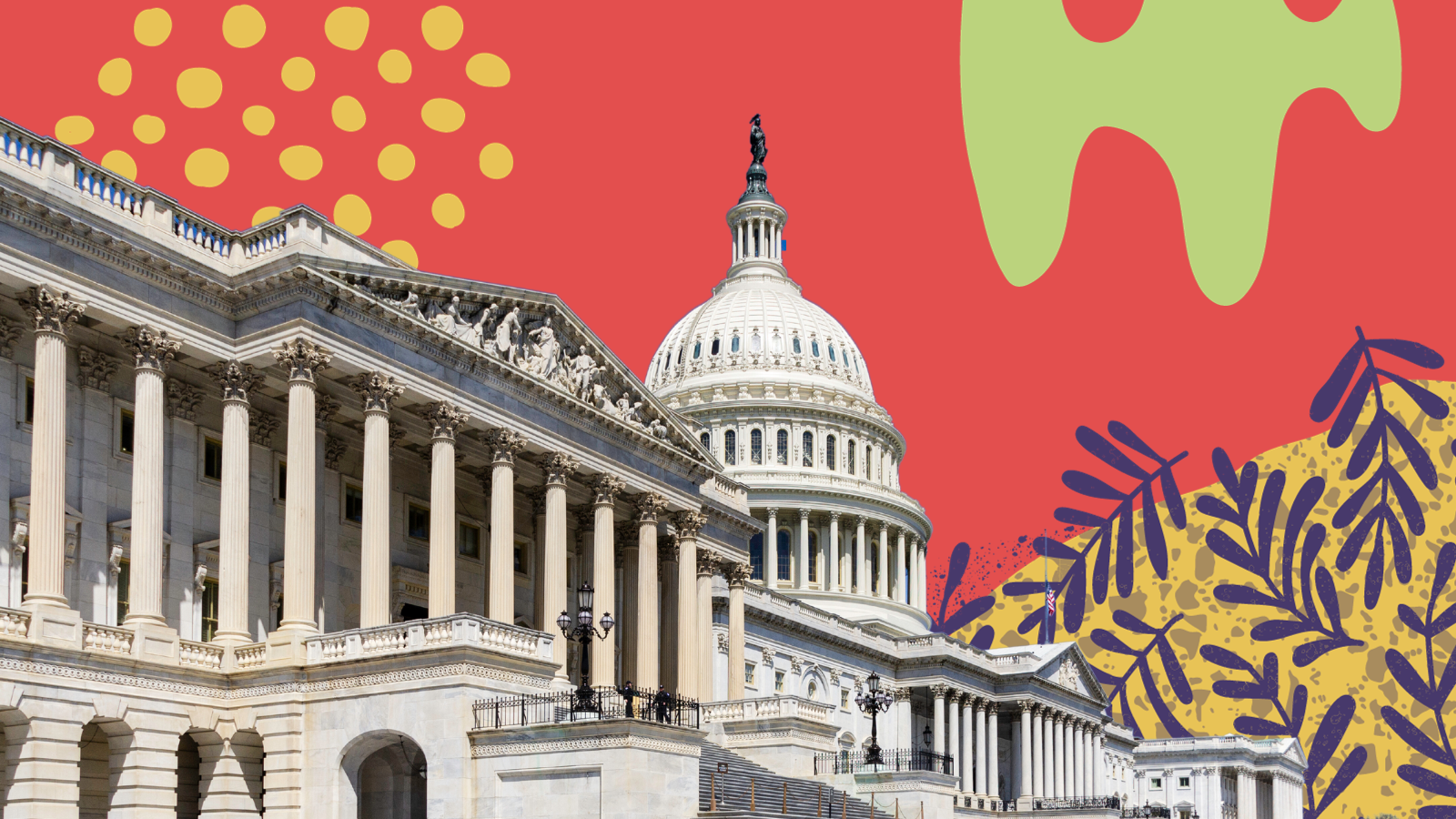We are just weeks away from yet another government shutdown. If lawmakers can’t agree on spending before November 17th, federal employees will be furloughed and federal programming will be paused.
But it’s not just the public sector that gets screwed, the rest of us do, too– especially small businesses and government contractors. Here at 8THIRTYFOUR, we work with a lot of them. So we wanted to talk about the ripple effect of a looming government shutdown, and what we can do about it.
What the Hell is Happening in DC?
It’s a question we ask ourselves daily. We have no budget, two wars are happening overseas, there’s been another mass shooting, and somehow lawmakers just spent the last three weeks arguing over who was going to lead the House of Representatives.
Sure, they finally elected a House Speaker–Representative Mike Johnson. Have you heard of him? Us either. It’s looking less and less likely that a deal on how to fund the government will be reached by that upcoming November deadline, and to make matters worse, it’s already having a negative impact.
Just the Threat
If you thought you might be out of work in a week, you would probably pump the brakes, too. That’s what some government agencies have started doing, and it’s impacting the federal contractors who rely on their work to keep their business going.
You also see those government contractors hitting pause on any spend, unsure if their contract is going to matter once November 17th hits. It doesn’t take an actual shutdown to slow things down, just the threat of one.
Small Business Impact
There’s a lot of obvious signs of a government shutdown. Federal service stops and government employees are temporarily out of work. We wanted to touch on some of the things happening under the radar that are impacting small businesses.
- Reduced Access to Resources: This is government loans, contracts, and permits that a small business needs to operate. During a shutdown, access to these resources can be disrupted or delayed, leaving those businesses in a lurch. It could also mean costlier small business loans as private lenders are forced to increase their interest rates.
- Delayed or Halted Contracts: The federal government is the largest customer in the world and wants to contract with small businesses. When the government is shut down, those contracts can be disrupted or halted entirely, threatening jobs and financial stability. Government contractors could make the difficult decision to lay-off employees and reducing any outside spend as well as going without a paycheck.
- Economic Impact: Small businesses employ close to half of all U.S. private sector workers. So, when they struggle, so does our economy. And as you may imagine, the long-term effects of a shutdown could be disastrous.
What Do We Do?
The situation is serious, but not completely hopeless. There’s a lot businesses can do to plan for and rebound from a shutdown.
- Contact Your Damn Congressman: You may not be able to do much about passing a budget, but they sure can. And better yet, if your lawmakers aren’t working together on a deal, there’s a surefire way to make sure they can’t screw you over again: VOTE.
- Have a Crisis Response Plan: As small businesses we’re used to planning for the worst, while hoping for the best. This is where a crisis response and communication plan comes in. It’s something a lot of small businesses think of – being proactive is a hell of lot more effective than reactive. Make sure you have a process, messaging, communication chain and more. If you don’t know where to start, contact us. It is literally why we exist, to protect your ass in times like these.
- Assess Risk: Especially for government contractors, you’ll want to assess how many government resources you’ll need to execute your contract, since even fully funded contracts may face performance challenges if you no longer have access to government facilities or resources during a shutdown.
- Manage Internal/External Communications: Keep everyone informed. That means updating your employees on what the process will look like both before and during a shutdown. You’ll also want to update any partners or shareholders to alleviate concerns, and in some cases it will be necessary for you to keep the public informed, too.
You can read more tips on how to prepare for a government shutdown from our friends at Parabilis here.
Resources
You are not alone. There are so many organizations out there to help small business owners and government contractors. People who will advocate on your behalf and help you in tough times. Here’s just a few we suggest joining immediately, if you haven’t already.
- Small Business Association and any local chapters, like Small Business Association of Michigan, here in our state.
- National Defense Industrial Association
- Women Impacting Public Policy
- Women In Defense
We talked to the CEO of JetCo Federal, Sue Tellier, about the looming government shutdown. You can listen to that Happy Hour Hustle podcast episode here.









